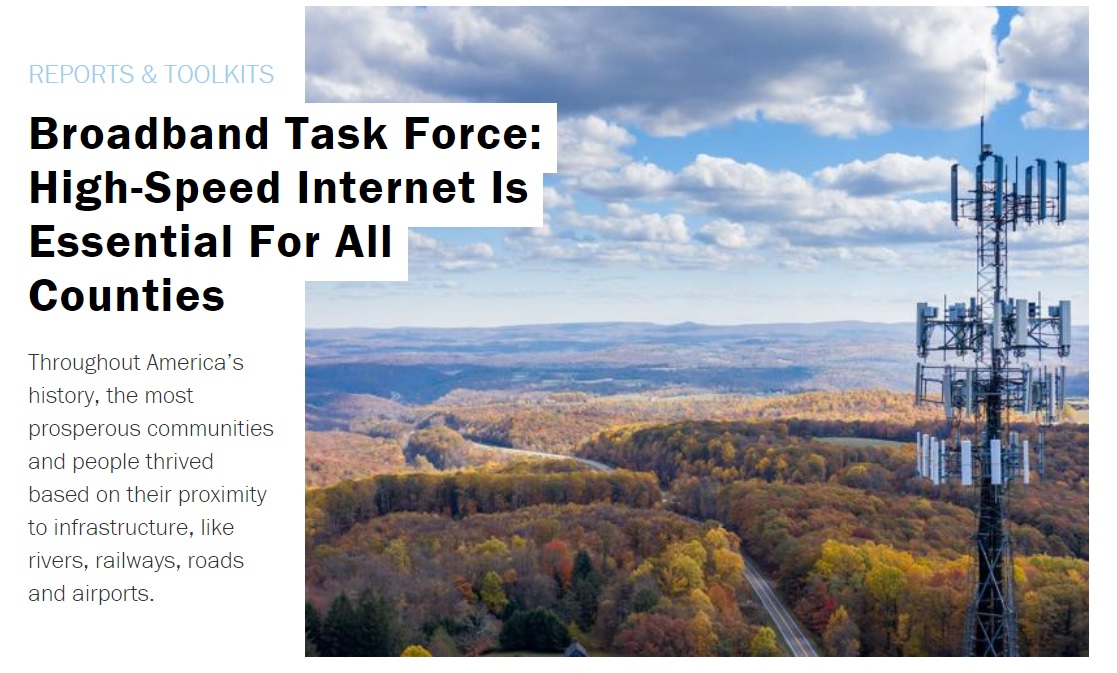County Governments: Digital Divide is Widening, Not Closing
Said coordinated investment is key, echoing VP call for counties to lobby for infrastructure spending

The smarter way to stay on top of the multichannel video marketplace. Sign up below.
You are now subscribed
Your newsletter sign-up was successful
The timing may be coincidental, but only days after Vice President Kamala Harris urged the National Association of Counties (NACo) to lobby for broadband infrastructure funding by highlighting the challenges of closing the digital divide, it is doing just that.
A report from NACo's Broadband Task Force assets that given "significant gaps in broadband access," and the barriers to closing those gaps, the digital divide is getting bigger, not smaller, and reversing that is a top equity issue facing county governments. "Lack of reliable broadband is a major barrier to socioeconomic opportunity, education, health and overall quality of life," the group said.
Also Read: White House Paints Depressing Portrait of U.S. Broadband
Among the reports top-level "preliminary findings" are that 1) internet access needs to be regulated as a utility (Title I, common carrier service; 2) there needs to be a "modern" minimum standard for broadband (which it calls one of several "force multipliers"); 3) better broadband availability data is key; 4) opening up middle mile "systems" would increase competition and lower prices.
Not surprisingly, the task force also favored federal law preempting restrictions on municipal broadband, laws broadband providers have pushed for citing overbuilds and system failures that leave taxpayers holding the money bag.
The Biden Administration sees municipal broadband as a key player in its multi-billion-dollar broadband infrastructure proposal.
"A comprehensive, coordinated approach to bridge the divide is needed to pursue new broadband infrastructure investment, public policies and user skills," NACo said in releasing the report.
The smarter way to stay on top of the multichannel video marketplace. Sign up below.
Harris was lobbying for just such an approach in her speech to NACo this week, in which she said the current state of broadband is "clearly unacceptable."
The President has charged Harris with overseeing his efforts to get high-speed, affordable broadband to every person. Currently that effort is focused on a bipartisan infrastructure package that includes $65 billion for broadband, as well as an executive order urging the FCC to take what regulatory steps it can toward that goal.
Contributing editor John Eggerton has been an editor and/or writer on media regulation, legislation and policy for over four decades, including covering the FCC, FTC, Congress, the major media trade associations, and the federal courts. In addition to Multichannel News and Broadcasting + Cable, his work has appeared in Radio World, TV Technology, TV Fax, This Week in Consumer Electronics, Variety and the Encyclopedia Britannica.

